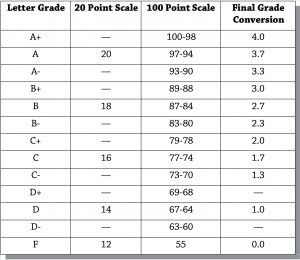UPDATED: May 27, 2018
[PDF for Course Syllabus]
[PDF for Detailed Course Plan]
| First Day of Classes: June 4, 2018 Last Day to Drop: June 4 2018 Last Day to Add: June 6, 2018 Last Day of Classes: June 28, 2018 Final Grades Available: August 18 (But I will probably post them during the first week of July.) |
Dr. Carol L. Robinson Email: clrobins@kent.edu Website: http://www.cyberspacerobinson.org/Blackboard Learn Use: Grades and materials will be posted in the course site here. |
Course Description
ENG 39995 Special Topics in Cultural Studies
(Repeatable for credit when topic varies) Study of selected topics in cultural studies organized around a particular mode or methodology of cultural analysis. Prerequisite: ENG 21011 or HONR 10297. 3.000 Credit hours
WMST 40095 Special Topics in Women’s Studies III
Repeated registration permitted when topic varies. Informed study of critical issues in women’s studies from an international or global perspective. Prerequisite: WMST 30000 or WMST 30001. 3.000 Credit hours
Florence has long been a haven for British and American feminist discourse and debate over questions ranging from gender roles to sexuality, from anti-feminism and anti-anti-feminism to male-centricity and womansim. This course will explore the feminist debate through stories, plays, novels, autobiographies and films—some composed by women and others composed by men, all composed in English by British, American, or Italian artists. The course will cover movements and genres from the Middle Ages, the Renaissance, and the 18th – 21st centuries.
Required Texts and Films:
- Several works made available online (PDFs) and in a printed course packet
- Several films and/or parts of films made available online and/or in class
- Forster, Edward Morgan. A Room with a View (any version is acceptable)
- von Arnim, Elizabeth. The Enchanted April (any version is acceptable)
- Mayes, Frances. Under the Tuscan Sun (any version is acceptable)
Learning Outcomes
- Students will be able to understand the unique historical development of feminist theory and feminism by British and Italian women, with some American context.
- Students will appreciate the historical differences between the medieval anti-feminist and anti-anti-feminist debate and the modern (post-medieval) concept of feminism.
- Students will develop an understanding of feminist theory, including in light of adaptation theory (literature into film).
- Students will comprehend the relationships between literature and film.
- Students will understand the unique geographical influence of Florence over feminist thought, literature, and film.
- Students will master skills in applying feminist critiques of literature and film.
- Students will develop some skills in appreciating cinematic aesthetics.
- Students will review literary aesthetics.
Writing Assignments and Exams
Journal (40%, 400 points; 10%, 100 points each week; 2%, 20 points each entry)
You will keep a journal for four weeks, with each week holding five entries. Each entry should be roughly 200-300 words long. Alternatively, students may choose to compose one long entry for each week, which should be roughly 1000-1500 words long. Most of the focus is on the weeks’ readings and viewings 4/5 of the focus); another part of the focus should be an attempt to tie that unit to your touring experiences (1/5 of the focus). The purpose of the journal is two-fold: to prepare your thoughts for the exams, but also to tie your course and touring experiences together. The central question you are exploring is how does history stand within the geographical presence? More detailed directions, as well as a list of suggestions, will be provided at the start of class. NOTE: best journal entries may be added to the course blog, with your permission (and possibly some editing). Entries are evaluated on a weekly basis; each week’s worth of entries is due the following Monday.
Mid-term Exam (10%; 100 points)
This is an essay style exam that will require you to put together that unit’s readings and viewings in light of particular topic questions. It is an in-class, open-books and open-notes exam that is focused upon your ability to apply knowledge toward deeper thought about the subject matter. It covers materials from the first two weeks of the course.
Final Exam (20%; 200 points)
This is an essay style exam that will require you to put together that unit’s readings and viewings in light of particular topic questions. It is an in-class, open-books and open-notes exam that is focused upon your ability to apply knowledge toward deeper thought about the subject matter. It is comprehensive, covering materials from the entire four weeks of the course.
Research or Creative Project (30%; 300 points)
This project may draw upon your Journal entries. You must choose a film and/or a work of literature. You are encourage to choose a work that we are not covering in class, that is relevant to the class focus. You must also choose a particular focus to apply to that work, or works. This focus might be an aspect of feminist theory, a small piece of history that develops from medieval times into the contemporary age, a narrative theme, or a motif. Finally, you must choose one type of project. Below is an overview of the possible types of projects; more detailed directions will be provided at the start of class:
TYPE OPTION #1: Generate a traditional research paper: the paper must be 2000 to 3500 words long (typed, double-
spaced, 12pt. font) and make use of at least ten quality sources that you find on your own.
TYPE OPTION #2: Generate a multimedia work that must make use of at least ten quality sources that you find on your
own. You will have to propose the medium, or media, that you pan to use. For example, you may make a video (such as with your smartphone) that is 10-20 minutes long, or you may do a combination video and written work (such as a blog with videos and/or other supplemental media).
TYPE OPTION #3: On 1-2 pages (typed, double-spaced, 12pt. font), describe the work(s) and the focus you choose.
Generate historical fiction genre: a graphic novella, a series of three short stories, or something similar. It should be clear how this work of fiction parallels historical reality.
TYPE OPTION #4: Generate a combination of two or more of the above type options, with my approval.
TYPE OPTION #5: Proposal an alternative form of expression. Write 1-2 pages (typed, double-spaced, 12pt. Font) in
which you describe your idea and argue for the benefits of your idea. You must gain my approval before moving forward with this option!
Course Grades
No grade ever goes above the level of an A+ (never above 100/100 possible points, for example); likewise, no graded work ever goes below the upper level of an F points (never below 55/100 points, for example); however, if an assignment is never submitted, or is submitted too late to be graded, it will receive ZERO points. There are two scales: a 20 point scale (2% total course grade) and a 100 point scale (10% total course grade; see the chart). Only grades for A, B, C, D and F may be earned at the 2%/20 point scale. (The 100 point scale is doubled or tripled for 20% and 30% assignments.) If your final course score is 64-63%, you will earn a D for the course; if your final course score is 62-60%, you will earn an F for the course. All assignments will be weighted according to the percentage value.
goes below the upper level of an F points (never below 55/100 points, for example); however, if an assignment is never submitted, or is submitted too late to be graded, it will receive ZERO points. There are two scales: a 20 point scale (2% total course grade) and a 100 point scale (10% total course grade; see the chart). Only grades for A, B, C, D and F may be earned at the 2%/20 point scale. (The 100 point scale is doubled or tripled for 20% and 30% assignments.) If your final course score is 64-63%, you will earn a D for the course; if your final course score is 62-60%, you will earn an F for the course. All assignments will be weighted according to the percentage value.
Attendance
A regular semester runs for roughly 15 weeks (including vacation days, not including final exam days). This class is running for just over 1/3 that time, which means that each day of class is roughly equivalent to 1 week of class. It is crucial that you attend each class: on time and prepared. If you miss a class, it is your responsibility to attain class notes from a fellow student (and you should buy them gelato for those notes, at the very least)! If there are film screenings on that day, it is your responsibility to find a way to see them on your own—do not ask to borrow my DVDs or to locate the clippings online for you. If you miss an exam day, you must provide a valid excuse (such as documented illness) in order to make-up that exam. To encourage you to come to class, I will be assigning pop-quizzes that will count as extra-credit on the exams. To discourage you from missing class, I will be deducting 5% (5 points out of a possible 100 points) from either the Mid-term or Final Exam (depending upon which is forthcoming at the time of the missed class).
Regarding Work Submitted Late
Late work will be accepted for a period of time after the due date; however, points will be deducted for late submissions. For each day the work is late: 6% (6 out of a possible 100 points) will be deducted from the grade. Any entry for a particular week’s Journal submitted late (the following week or later) will affect the grade for that entire journal week! No work will be accepted after June 28, 2018.
SAS: Student Accessibility Services
Kent State University recognizes its responsibility for creating an institutional climate in which students with disabilities can succeed. University policy 3-01.3 requires that students with disabilities be provided reasonable accommodations to ensure their equal access to course content. If you have a documented disability, you may request accommodations to obtain equal access and to promote your learning in this class. After your eligibility for accommodations is determined, you will be given a letter to provide to the class instructor to make arrangements for any necessary classroom adjustments.
Cheating and Plagiarism
University policy 3342-3-01.8 deals with the problem of academic dishonesty, cheating, and plagiarism. None of these will be tolerated in this class. The sanctions provided for in this policy will be used to deal with any violations. If you have questions, please read the policy at http://www.kent.edu/policyreg/policydetails.cfm?customel_datapageid_1976529=2037779 and/or ask your instructor.
General Course Plan

←“Italian women hold placards during a demonstration against the country’s
former Prime Minister Silvio Berlusconi in downtown Rome in 2011.”
(“Bunga Bunga” refers to Berlusconi’s sex parties.)
SOURCE:
Cooper, Marta. “Meet the Italian Women Fighting to Be More than
Mothers and Lovers.” The Telegraph, 4 Apr. 2013 [London], life ed., https://www.telegraph.co.uk/women/womens-life/9968817/Meet-the-Italian-women-fighting-to-be-more-than-mothers-and-lovers.html. Accessed 20 May 2018.

